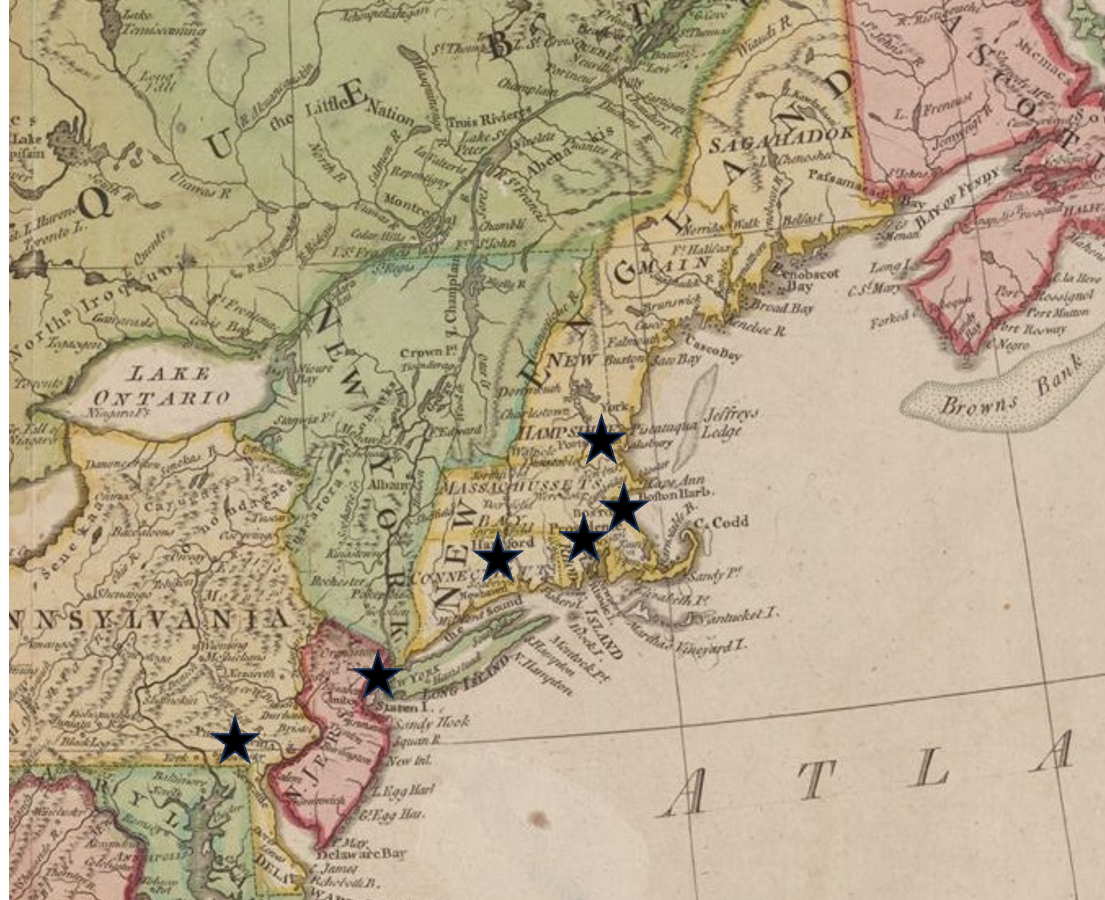Events are funded in part through generous grants from the Massachusetts Cultural Council, Massachusetts Society of the Cincinnati, the Lowell Institute, Hub Town Tours, and the Revere Hotel.

- This event has passed.
“The Narragansett Pacer: The Finest Riding Horse in 18th-Century New England”
October 8 @ 6:30 pm - 7:45 pm

Online lecture by Charlotte Carrington-Farmer, Professor of History, Roger Williams University
Horses first appeared in New England in 1629, when Francis Higginson shipped approximately 25 mares and stallions from Leicestershire, England to the Massachusetts Bay Colony. Horses were central to survival in terms of work, travel, communication, and leisure. However, for New Englanders, horses were also a staple exportation commodity, and by the mid-eighteenth century New England led the way in shipping horses to the sugar colonies. Amongst the diverse types of horses that were raised in New England, the Narragansett Pacer was exceptional in many ways. The Pacer’s easy gait made it suitable for both long-distance travel and racing. The Pacer was the first “truly” American breed of horse, and it was in high demand all around the Atlantic World. However, from such promising beginnings, the Pacer was extinct by the next century. The talk will examine how the Narragansett Pacer emerged in Rhode Island in the 17th century, what made it so special as riding horse, how the breed is connected to well-known people including Paul Revere and George Washington, and how it has been memorialized in literature and art.
Charlotte Carrington-Farmer is a Professor of History at Roger Williams University, and she specializes in early American History. She received her Ph.D. from the University of Cambridge in 2010. She has published biographies of Thomas Morton and Roger Williams in edited collections. She has a forthcoming book, Roger Williams and His World, coming out this fall with Broadview Press and a forthcoming article on Mary Williams in the New England Quarterly, entitled: “More than Roger’s Wife: Mary Williams and the Founding of Providence.” Dr. Carrington-Farmer has a keen interest in equine history in the early modern Atlantic World. Her research examines the breeding and export of horses from New England to the West Indies and South America and its intersection with enslaved lives and labor. She has published an article entitled: ‘The Rise and Fall of the Narragansett Pacer,’ Rhode Island History, Winter/Spring 2018, Volume 76, Number 1, pp. 1-38. She has written a chapter entitled: ‘Trading Horses in the Eighteenth Century: Rhode Island and the Atlantic World,’ in Kristen Guest and Monica Mattfeld, eds., Equine Cultures: Horses, Human Society, and the Discourse of Modernity, 1700-Present (Chicago: University of Chicago Press, 2019.) She recently published the following chapter: ‘Shipping Mules in the Eighteenth-Century: New England’s Equine Exports to the West Indies,’ in Elodie Peyrol-Kleiber, Lou Roper, Agnès Delahaye, and Bertrand Van Ruymbeke, eds., Agents of Empires: Companies, Commerce, and Colonies 1500-1800, (Manchester: University of Manchester Press, 2024.) Dr. Carrington-Farmer has a forthcoming chapter surveying equines in Atlantic history with Oxford University Press: ‘Equine Atlantic: Horses in the Early Modern Atlantic World,’ in Trevor Burnard, ed., Oxford Bibliographies in Atlantic History, (Oxford: Oxford University Press, forthcoming 2024.) Her book manuscript in progress, which received a New England Regional Fellowship Consortium research grant, is tentatively titled: Equine Atlantic: New England’s Eighteenth-Century Horse Trade to the West Indies.
This is an online lecture, presented as a part of the 2024 Lowell Lecture Series. This year’s series focuses on the lesser-known express assignments Paul Revere completed. Speakers will share the importance of his courier work not only as an individual act of patriotism but also as part of a communications system that involved complex overlapping networks of leaders of all stations. The series will also explore the very practical aspects of long-distance horse journeys and the local colonial politics in key communities Revere interacted with.
Presented in partnership with GBH, the Suffolk University History Department, Milton Historical Society/Suffolk Resolves House (Milton, MA), Carpenters’ Hall (Philadelphia, PA), Fraunces Tavern Museum (New York, NY), and the Portsmouth Athenaeum (Portsmouth, NH), with funding from the Lowell Institute. For more information, please contact staff@paulreverehouse.org. All lectures are free and open to the public. This lecture will be livestreamed by on the GBH forum network on YouTube and recordings will be available for viewing afterwards at the same link.

